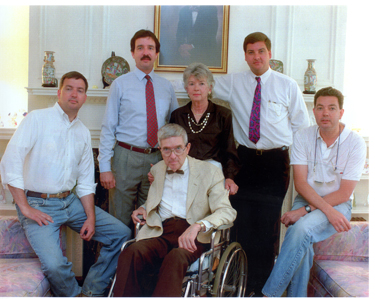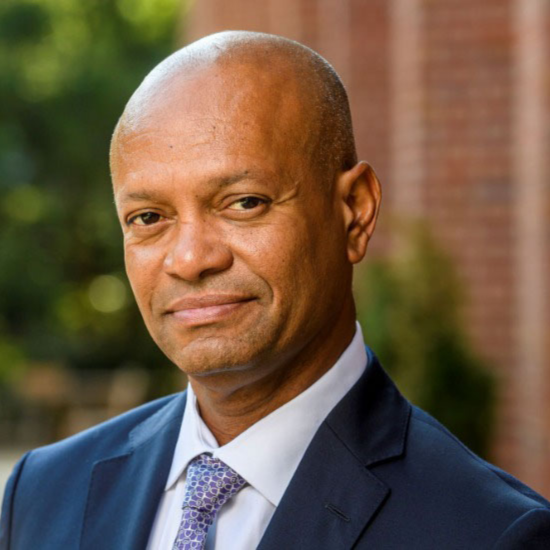 Baltimore broadcast pioneer JULIAN SINCLAIR SMITH received his bachelor’s degree in electrical engineering from Johns Hopkins in 1952. While a student, Mr. Smith worked as an engineer at WFBR-AM, one of Baltimore’s leading radio stations at the time. In 1958, he applied for his first FM radio station license, recognizing the impact FM broadcasting and its clear signal would have on commercial radio operations. His classical music station, WFMM-FM (93.1), went on the air two years later. He built the station’s control panels himself, on the dining room table in his parents’ home.
Baltimore broadcast pioneer JULIAN SINCLAIR SMITH received his bachelor’s degree in electrical engineering from Johns Hopkins in 1952. While a student, Mr. Smith worked as an engineer at WFBR-AM, one of Baltimore’s leading radio stations at the time. In 1958, he applied for his first FM radio station license, recognizing the impact FM broadcasting and its clear signal would have on commercial radio operations. His classical music station, WFMM-FM (93.1), went on the air two years later. He built the station’s control panels himself, on the dining room table in his parents’ home.
He became interested in the budding ultrahigh frequency (UHF) technology in the early 1960s. Convinced that there were other markets beyond the one already served by CBS, NBC, and ABC, Mr. Smith waited five years before being granted the license and launched WBFF-TV, now known as Fox-45, in 1971.
Mr. Smith, along with his wife, Carolyn, and sons, David, Fred, Duncan, and Rob, founded the Sinclair Broadcast Group, Inc. in 1971. Today, Sinclair Broadcast Group, Inc. is one of the largest and most diversified television broadcasting companies in the country. Sinclair owns and operates programs or provides sales services to 74 television stations in 45 markets. Sinclair’s television group reaches approximately 26.3% of U.S. television households and includes FOX, ABC, MyTV, CW, CBS, NBC, MTN, and Azteca affiliates.
Julian S. Smith died in 1993 at the age of 72. The Smith family established the Julian S. Smith Endowed Professorship in Electrical Engineering in 1996 to honor and celebrate his lifelong achievements.
Held by Ralph Etienne-Cummings
 Ralph Etienne-Cummings, PhD, assumed the position of Vice Provost for Faculty Affairs in July 2022. In this role, Dr. Etienne-Cummings is a key contributor to the development and execution of the long-term vision of the Office of the Provost. Specifically, he works closely with schools across the university to address pressing issues facing our faculty, identify opportunities to increase collaboration, increase faculty diversity, and continue efforts to improve mentorship programs for our junior faculty.
Ralph Etienne-Cummings, PhD, assumed the position of Vice Provost for Faculty Affairs in July 2022. In this role, Dr. Etienne-Cummings is a key contributor to the development and execution of the long-term vision of the Office of the Provost. Specifically, he works closely with schools across the university to address pressing issues facing our faculty, identify opportunities to increase collaboration, increase faculty diversity, and continue efforts to improve mentorship programs for our junior faculty.
Dr. Etienne-Cummings has been a Johns Hopkins faculty member in the Department of Electrical and Computer Engineering since 1998 with a secondary appointment in Computer Science. He served as chair of the Electrical and Engineering department from 2014 to 2020.
Dr. Etienne-Cummings earned a bachelor’s in Physics from Lincoln University and a master’s and PhD in electrical engineering from the University of Pennsylvania. Etienne-Cummings has published nearly 400 technical articles, books/book chapters, and patents related to his research pursuits over a career that spans more than three decades. He is the founding director of the Institute of Neuromorphic Engineering and has received numerous awards and recognitions for his research, including the National Science Foundation’s Career and Office of Naval Research Young Investigator Program Award and multiple JHU Discovery Awards.
A pioneer for the past three decades in mobile robotics and legged locomotion, Ralph Etienne-Cummings’ innovations have the potential to produce computers that can perform recognition tasks as effortlessly and efficiently as humans can and has developed prosthetics that can seamlessly interface with the human body to restore functionality after injury or to overcome the disease. His research foci include developing systems and algorithms for biologically inspired and low-power processing, biomorphic robots, closed-loop neural prosthetics, and computer-integrated surgical systems and technologies.
 Baltimore broadcast pioneer JULIAN SINCLAIR SMITH received his bachelor’s degree in electrical engineering from Johns Hopkins in 1952. While a student, Mr. Smith worked as an engineer at WFBR-AM, one of Baltimore’s leading radio stations at the time. In 1958, he applied for his first FM radio station license, recognizing the impact FM broadcasting and its clear signal would have on commercial radio operations. His classical music station, WFMM-FM (93.1), went on the air two years later. He built the station’s control panels himself, on the dining room table in his parents’ home.
Baltimore broadcast pioneer JULIAN SINCLAIR SMITH received his bachelor’s degree in electrical engineering from Johns Hopkins in 1952. While a student, Mr. Smith worked as an engineer at WFBR-AM, one of Baltimore’s leading radio stations at the time. In 1958, he applied for his first FM radio station license, recognizing the impact FM broadcasting and its clear signal would have on commercial radio operations. His classical music station, WFMM-FM (93.1), went on the air two years later. He built the station’s control panels himself, on the dining room table in his parents’ home.